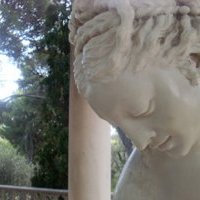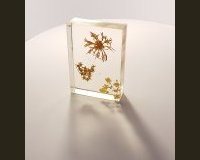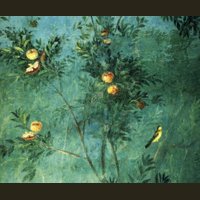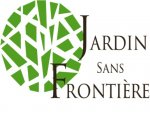accueil site > 45. Archives > Paysage et patrimoine > 12. Pedagogic tools > 17. Pedagogic tools > 09994. 31 - Reading the botanical garden of Padua, Italy
-
45. Archives
-
Paysage et patrimoine
-
01. Fiches pédagogiques
Disciplines
-
01. Teaching materials
Disciplines
-
02. Jardin sans frontière : une école pour développer les compétences -clés en Europe
- 04. Partenaires
- 05. Rencontres transnationales
- 14. À l’école du jardin. Mobilités de formation dans les jardins d’Europe
- 15. À l’école européenne du jardin. Paroles de formateurs sur leurs formations "entre pairs"
- 16. A l’école auropéenne du jardin. Paroles d’apprenants sur leurs mobilités Erasmus+
- 19. Petit glossaire "européen" du jardin
- 20. Dissémination
- 21. Exploitation locale du projet
- 03. Un nouvel Erasmus+ : Le bleu européen comme étendard contre l’exclusion des adultes
-
09. Erasmus+ partenariato
-
Cammini del Blu in Europa
- 01. Incontri transnazionali
- 05. Progetti blu di partners
- 10. Percorsi europei del Blu
- 20. Storie blu
- 40. Disseminazione
- 43. Transcultural Carpet Blue
- 45. Missive blu
- 46. Glossario blu
- 47. Schede didattiche "Pedagogia del colore blu in Europa"
- 48. Illustrazioni delle schede didattiche : Mostra delle opere degli studenti
-
Giardino senza frontiere. Una scuola per lo slivuppo di competenze chiave in Europa
- 04. Partners
- 05. Riunioni transnazionali
- 14. Alla scuola del giardino. Mobilità di formazione nei giardini d’Europa
- 15. Alla scuola del Giardino. Parole di formatori sul loro addestramento "tra pari"
- 16. Alla scuola del giardino. Parole dei discenti sul loro Erasmus + Mobilità
- 19. Piccolo glossario europeo del giardino
-
Cammini del Blu in Europa
-
11. Erasmus+ Partnership
- 01. Transnational Meetings
- 05. Blue Projects of partners
- 07. European roads of the Blue
- 10. Blue stories
- 40. Dissemination
- 43. Transcultural Carpet Blue
- 45. Blue Missives
- 46. Blue Glossary
- 48. Roads of the blue : the file
- 50. Illustrations of the pedagogic file : exhibition of works of learners
-
51. Garden Without Borders : A School for Developing Key Competences in Europe
- 04. Partners
- 05. Transnational meetings
- 14. At Garden School. Training mobilities in the gardens of Europe
- 15. At Garden School. Words of trainers on their "peer-to-peer" training
- 16. At Garden School. Learners’ words about their mobility Erasmus +
- 19. Small European glossary of the garden
- 20. Dissemination
-
11. Partenariats Erasmus+
-
01. Les chemins du bleu en Europe
- 01. Rencontres transnationales
- 05. Projets bleus des partenaires
- 10. Routes du Bleu en Europe ...
- 20. Histoires Bleues
- 40. Dissémination
- 43. Transcultural Carpet Blue
- 45. Missives bleues
- 46. Glossaire bleu
- 47. Formation pédagogique : fiches pédagogiques et référentiel de compétences clés et transversales
- 50. Illustrations des fiches pédagogiques : exposition des travaux des apprenants
-
01. Les chemins du bleu en Europe
- 12. Pedagogic tools
- 17. Fiches pédagogiques
- 17. Schede Pedagogiche
-
01. Fiches pédagogiques
- 05. Livre d’or des formations
- 07. Livre d’or des formations Comenius - Grundtvig
- 10. National
- 20. International
-
Paysage et patrimoine
09994. 31 - Reading the botanical garden of Padua, Italyjeudi 13 septembre 2018
PROJECT
To research and collect information on the Botanical Garden of Padua, its history and what it communicates. To answer a questionnaire as part of a competition among groups of students.
PUBLIC
This educational activity was conceived by the teacher as a result of a peer-to-peer training mobility developed in Saint-Germain-en-Laye from 4 to 8 June 2018 based on a transversal approach to the theme of the garden. This methodology was later experimented in the Botanical Garden of the University of Padua, Italy, with the participation of 83 students of the high school Enrico Fermi of Padua – some of them with learning difficulties, within a framework of collaboration between the Association Acquamarina and the Botanical Garden of Padua.
KEY COMPETENCES
![]() Communication in the mother tongue
Communication in the mother tongue
![]() Scientific and mathematical competences
Scientific and mathematical competences
![]() Learning to learn
Learning to learn
![]() Social competences and citizenship
Social competences and citizenship
![]() Humanist culture and expression of sensitivity
Humanist culture and expression of sensitivity
OBJECTIVES
To use the garden as a vehicle to :
![]() motivate moments of communication and exchange among the groups
motivate moments of communication and exchange among the groups
![]() carry out researches and collect information
carry out researches and collect information
![]() observe the garden accurately and be able to describe it
observe the garden accurately and be able to describe it
![]() rally competences and knowledge in order to answer a questionnaire
rally competences and knowledge in order to answer a questionnaire
![]() learn how to work in group effectively.
learn how to work in group effectively.
GARDENS EXPLORED
Botanical Garden of the University of Padua, Italy
MATERIALS
![]() A clean map of the Botanical Garden
A clean map of the Botanical Garden
![]() Questionnaire on the garden
Questionnaire on the garden
![]() Pencils and colours
Pencils and colours
DEVELOPMENT
1.Form the groups
2.Elicit explanations
Each group participates in the contest following the rules of the game : in an hour’s time they will build up their own maps with names of the Botanical Garden also availing themselves of the answers to the questionnaire. The students in each group can get organized as they want : subdividing tasks, sharing questions and answers, etc.
3.Invite the students to rally their competences and knowledge by :
![]() using some basic geometrical notions to recognise form, calculate areas and lengths
using some basic geometrical notions to recognise form, calculate areas and lengths
![]() observing, recognising, recreating some of the typical forms of the garden with the help of drawings and picture
observing, recognising, recreating some of the typical forms of the garden with the help of drawings and picture
![]() getting oriented within the spaces of the garden, starting for example from the cardinal points
getting oriented within the spaces of the garden, starting for example from the cardinal points
![]() researching and recognizing structures and objects described in the questionnaire
researching and recognizing structures and objects described in the questionnaire
![]() finding and describing the plants properly, with their names, spots, structures, areas of distribution and their characteristics
finding and describing the plants properly, with their names, spots, structures, areas of distribution and their characteristics
![]() providing these descriptions with the students’ knowledge and competences on history and history of art
providing these descriptions with the students’ knowledge and competences on history and history of art
4.Make the students aware that the final output of this ’reading’ will be a re-visited version of what was learnt, uploaded on the site in order to create a sensibly planned guide easy to read and understand.
EVALUATION
It takes into account the following points :
Oral and written communication in the mother tongue
![]() communicating and sharing information using a proper vocabulary
communicating and sharing information using a proper vocabulary
![]() being able to present one’s own work upholding choices and using notes
being able to present one’s own work upholding choices and using notes
![]() being able to use images and graphs as means of communication of a topic
being able to use images and graphs as means of communication of a topic
Development of cultural and scientific competences
![]() observing, summarising, using scientific knowledges and competences along with historical and artistic ones
observing, summarising, using scientific knowledges and competences along with historical and artistic ones
![]() use of graphic representations to communicate scientific facts
use of graphic representations to communicate scientific facts
Learning to learn
![]() organising the work autonomously to achieve an effective and gratifying result
organising the work autonomously to achieve an effective and gratifying result
![]() establishing relationship between previous and new knowledges
establishing relationship between previous and new knowledges
![]() learning to be critical about what was developed
learning to be critical about what was developed
Development of social and civic competences
![]() practising group work
practising group work
![]() sharing information and knowledges
sharing information and knowledges
AUTHORS
Nicole Schmidt and Elisa Corteggiani
Association Acquamarina, Trieste, in collaboration with the Botanical Garden of the University of Padua, Italy
TRANSLATER
Mary Gino
Association Acquamarina, Trieste, Italie


















 Version imprimable
Version imprimable
